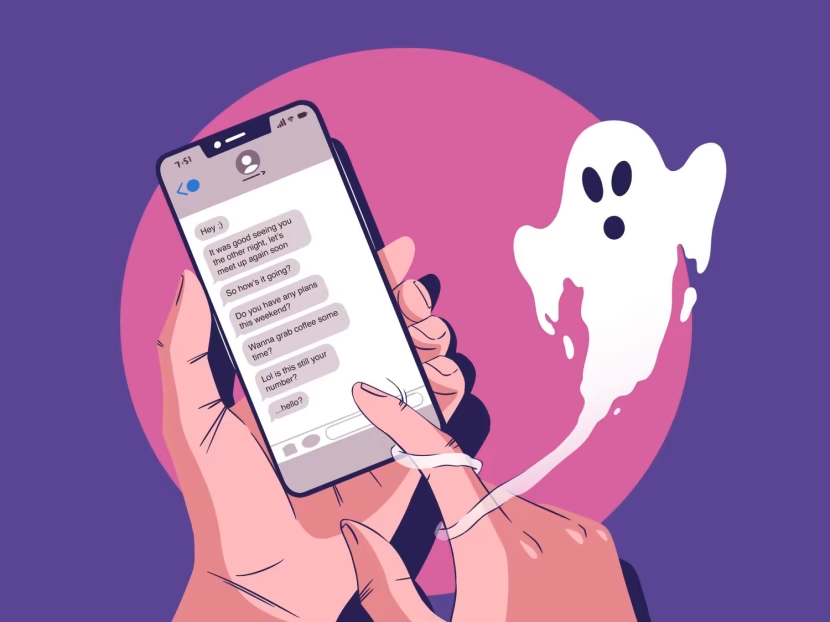We’ve all heard of it, many of us have been victimized by it, and some of us are repeat offenders of the dating phenomenon known as ghosting. While it’s is generally frowned upon as an inconsiderate and hurtful way to end a romantic connection, there are instances where this elusive act might be the most responsible (and even the safest) course of action. Before you raise your eyebrows in disbelief, let’s dive in to why sometimes, ghosting might be the only way out.
Imagine this scenario: you’ve been dating someone for a while, and everything seems to be going well. However, as time goes on, you start to notice some alarming red flags. Perhaps they exhibit controlling behavior, become overly possessive, or show signs of aggression. In such situations, personal safety should always be your top priority.
Sarah*, a 27-year-old from Lawrenceville, experienced firsthand the necessity of ghosting for safety reasons. She recalls, “I was dating this guy who seemed charming at first, but as time passed, he became increasingly possessive and aggressive. When I tried to end things, he threatened me. I realized that ghosting was the safest way to escape from that situation, and it allowed me to regain control of my life.”
While ghosting can be an effective tool for physical safety, it can also be a lifeline when it comes to protecting your emotional well-being. Emotional abuse can scar deeply. If you’re in a toxic relationship where your partner manipulates or belittles you, ghosting may be a viable option.
Consider Mark’s* story, a 32-year-old who spent months with a partner who constantly undermined his self-esteem. “I tried to break up with her multiple times, but she always guilt-tripped me into staying. It wasn’t until I ghosted her that I was finally able to escape her emotional clutches.”
Pivoting away from the darker aspects of ghosting, let’s explore a scenario where it may be less about personal safety and more about fading feelings. Sometimes, after a few dates, you realize there’s no real connection or chemistry. Instead of dragging it out and potentially leading your date on, gently fading away can be seen as sparing both parties unnecessary discomfort, especially if the other party is not receptive to subtle – or not so subtle – hints.
Of course, it’s crucial to remember that open and honest communication is usually the best approach, and relationship experts advocate open communication when ending a relationship. “It should always be the absolute last resort,” says psychologist Dr. Melanie Phelps.
When considering taking the ghost approach, keep in mind that being ghosted is emotionally devastating – which is why we can only advocate for its use in the most desperate of situations. Amy*, a 41-year-old from Shadyside, who has been ghosted in the past, shares her perspective: “I get that sometimes people need to protect themselves or escape toxic situations, but it’s still painful to be left without any closure. A simple message explaining things would have been so much better than being left in the dark.”
While we’ve explored the situations where ghosting might be justified, it’s crucial to highlight alternative methods for ending a relationship that prioritize empathy and communication.
The Direct Approach
This involves having an open and honest conversation with your partner about your feelings and intentions. While it might be uncomfortable, it allows both parties to express themselves and gain closure.
The Slow Fade
Rather than abruptly cutting off contact, gradually reduce your communication with your partner to signal your decreasing interest. This approach can provide a gentler exit without causing significant emotional distress.
The “Let’s Be Friends”
If you genuinely believe that you can maintain a friendship with your ex, you can have a conversation about transitioning your relationship to a platonic one. This approach can oftentimes soften the blow.
Whenever possible, alternative methods of ending a relationship that prioritize empathy and communication should be explored. Ultimately, it’s vital to strike a balance between self-preservation and compassion, ensuring that you have respectful, considerate connections – and disconnections.
*Names changed to protect anonymity.
